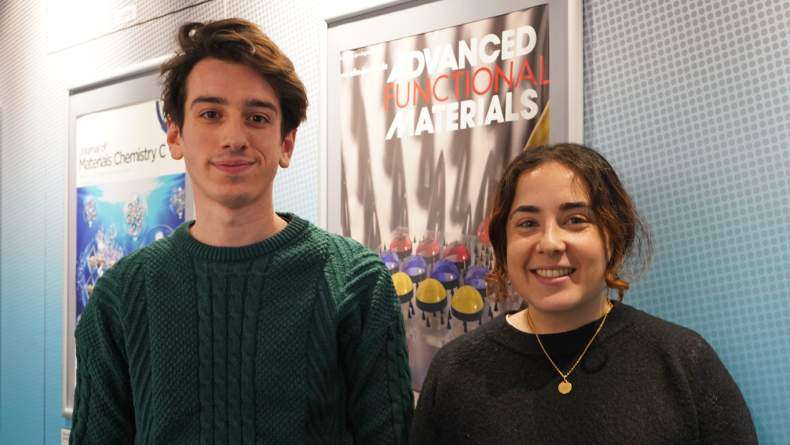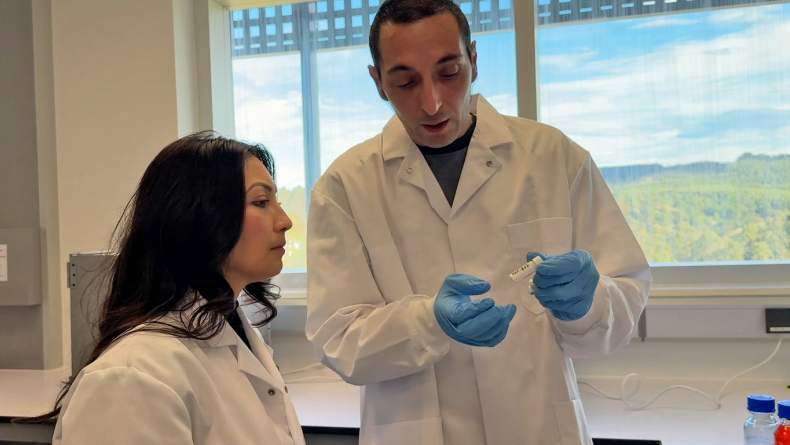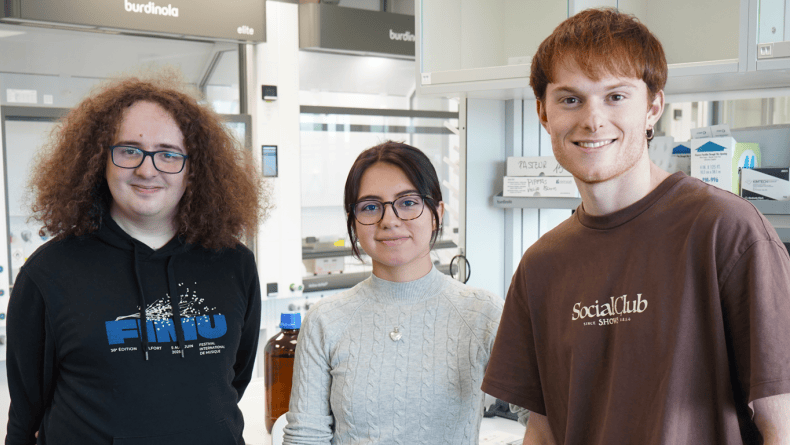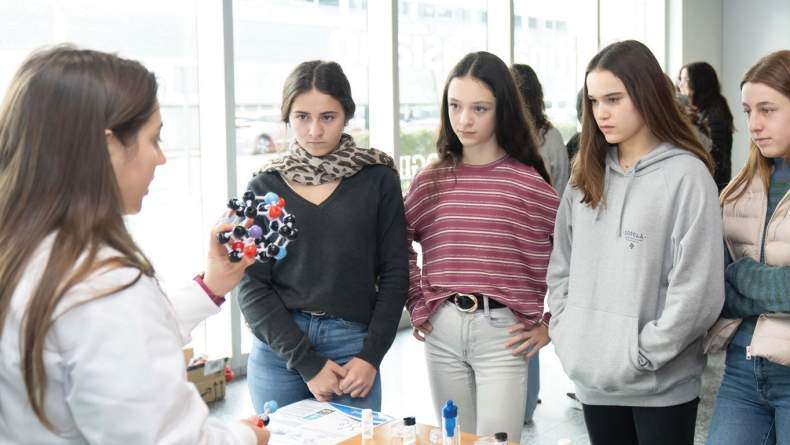BCMaterials invited talk: Francisco Montero-Chacón
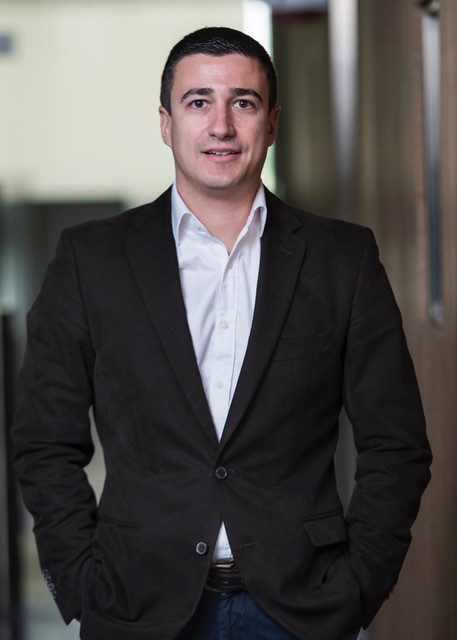
A multiscale, multiphysical approach for the virtual design of batteries: The VirtualBats Project.
 Francisco Montero-Chacón
Universidad Loyola Andalucía
Associate Professor of the Department of Engineering
Deputy Director of the School of Engineering
Francisco Montero-Chacón currently holds the position of Associate Professor of the Department of Engineering at the Universidad Loyola Andalucía, where he also serves as Deputy Director of the School of Engineering. Mechanical Engineer graduated from Universidad de Sevilla (2007), he received a Master of Science in Aerospace Engineering from the California Institute of Technology (2008) and a Ph.D. in Mechanical Engineering from Universidad de Sevilla (2013). He held the position of Senior Researcher at Abengoa Research (2012-2016), where he participated in the starting up of one of the largest privately-owned research institutes in Spain with major impact on renewable energies. He is currently member of the “Materials and Sustainability” research group at Universidad Loyola Andalucía. Dr. Montero-Chacón has led several projects on the simulation and characterization of advanced materials with application to renewable energies. As a researcher, he is interested in multiphysical multiscale analysis of materials for different applications. His expertise lies on the use of advanced numerical methods to better understand the behavior of complex materials combining both discrete- (e.g., DEM, MD, lattice) and continuum-based (e.g., FEM, FDM) tools, and coupling different physical phenomena (mainly heat transfer, diffusion, and deformation), in a wide variety of materials, namely, Ni-based superalloys, Si-based ceramics, cementitious composites and phase-change materials, covering the material, component, and system scales.
Francisco Montero-Chacón
Universidad Loyola Andalucía
Associate Professor of the Department of Engineering
Deputy Director of the School of Engineering
Francisco Montero-Chacón currently holds the position of Associate Professor of the Department of Engineering at the Universidad Loyola Andalucía, where he also serves as Deputy Director of the School of Engineering. Mechanical Engineer graduated from Universidad de Sevilla (2007), he received a Master of Science in Aerospace Engineering from the California Institute of Technology (2008) and a Ph.D. in Mechanical Engineering from Universidad de Sevilla (2013). He held the position of Senior Researcher at Abengoa Research (2012-2016), where he participated in the starting up of one of the largest privately-owned research institutes in Spain with major impact on renewable energies. He is currently member of the “Materials and Sustainability” research group at Universidad Loyola Andalucía. Dr. Montero-Chacón has led several projects on the simulation and characterization of advanced materials with application to renewable energies. As a researcher, he is interested in multiphysical multiscale analysis of materials for different applications. His expertise lies on the use of advanced numerical methods to better understand the behavior of complex materials combining both discrete- (e.g., DEM, MD, lattice) and continuum-based (e.g., FEM, FDM) tools, and coupling different physical phenomena (mainly heat transfer, diffusion, and deformation), in a wide variety of materials, namely, Ni-based superalloys, Si-based ceramics, cementitious composites and phase-change materials, covering the material, component, and system scales.
Francisco Montero-Chacón
Universidad Loyola Andalucía
Associate Professor of the Department of Engineering
Deputy Director of the School of Engineering
Recent advances in computational materials science and engineering are promoting a change in the paradigm of components design. These new simulation tools allows have made possible to observe materials at different length (and time) scales, providing insights into local phenomena (e.g., internal structure, defects, diffusion) that may have an important role at the component level (e.g., performance, integrity, durability) regardless of the application. This approach presents a solution to the demand of new energy storage devices, especially due to the rise of consumer electronics, electric vehicles, or distributed generation. In the VirtualBats project we aim at developing a new multiscale, multiphysical simulation platform combining discrete (e.g., molecular dynamics, discrete element modeling) and continuum-based (namely, finite elements) tools to enhance the design process of batteries. We will use dual-graphite Li-ion battery as a proof concept, although this framework can be extended to other types of batteries. Finally, the main challenges and proposed solutions to realize this simulation platform for this specific type of application will be explored. Francisco Montero-Chacón
Universidad Loyola Andalucía
Associate Professor of the Department of Engineering
Deputy Director of the School of Engineering
Francisco Montero-Chacón currently holds the position of Associate Professor of the Department of Engineering at the Universidad Loyola Andalucía, where he also serves as Deputy Director of the School of Engineering. Mechanical Engineer graduated from Universidad de Sevilla (2007), he received a Master of Science in Aerospace Engineering from the California Institute of Technology (2008) and a Ph.D. in Mechanical Engineering from Universidad de Sevilla (2013). He held the position of Senior Researcher at Abengoa Research (2012-2016), where he participated in the starting up of one of the largest privately-owned research institutes in Spain with major impact on renewable energies. He is currently member of the “Materials and Sustainability” research group at Universidad Loyola Andalucía. Dr. Montero-Chacón has led several projects on the simulation and characterization of advanced materials with application to renewable energies. As a researcher, he is interested in multiphysical multiscale analysis of materials for different applications. His expertise lies on the use of advanced numerical methods to better understand the behavior of complex materials combining both discrete- (e.g., DEM, MD, lattice) and continuum-based (e.g., FEM, FDM) tools, and coupling different physical phenomena (mainly heat transfer, diffusion, and deformation), in a wide variety of materials, namely, Ni-based superalloys, Si-based ceramics, cementitious composites and phase-change materials, covering the material, component, and system scales.
Francisco Montero-Chacón
Universidad Loyola Andalucía
Associate Professor of the Department of Engineering
Deputy Director of the School of Engineering
Francisco Montero-Chacón currently holds the position of Associate Professor of the Department of Engineering at the Universidad Loyola Andalucía, where he also serves as Deputy Director of the School of Engineering. Mechanical Engineer graduated from Universidad de Sevilla (2007), he received a Master of Science in Aerospace Engineering from the California Institute of Technology (2008) and a Ph.D. in Mechanical Engineering from Universidad de Sevilla (2013). He held the position of Senior Researcher at Abengoa Research (2012-2016), where he participated in the starting up of one of the largest privately-owned research institutes in Spain with major impact on renewable energies. He is currently member of the “Materials and Sustainability” research group at Universidad Loyola Andalucía. Dr. Montero-Chacón has led several projects on the simulation and characterization of advanced materials with application to renewable energies. As a researcher, he is interested in multiphysical multiscale analysis of materials for different applications. His expertise lies on the use of advanced numerical methods to better understand the behavior of complex materials combining both discrete- (e.g., DEM, MD, lattice) and continuum-based (e.g., FEM, FDM) tools, and coupling different physical phenomena (mainly heat transfer, diffusion, and deformation), in a wide variety of materials, namely, Ni-based superalloys, Si-based ceramics, cementitious composites and phase-change materials, covering the material, component, and system scales.Related news
Sara Martín and Stefano Lunghi Join BCMaterials as New Researchers
BCMaterials is pleased to welcome two new members to its research team: Sara Martín Iglesias, a postdoctoral researcher in the Active and Smart Materials research line, and Stefano Lunghi, a…Nanomaterials for Water Remediation and Valorization
Scientific staff at BCMaterials are developing next-generation nanomaterials combined with naturally sourced polymer membranes for water decontamination and reuse. These advanced materials not only…Three New Resarchers Join BCMaterials
The new year has brought BCMaterials the arrival of three new young scientists to our staff. They are the pre-doctoral researchers Karen Cano and Mikel Russo, along with the post-doctoral researcher…BCMaterials Activities at Emakumeak Zientzian (Women in Science)
This year marks the 10th anniversary of the Emakumeak Zientzian (Women in Science) initiative, which brings together more than 30 Basque organizations (universities, research centers, companies…) to…
